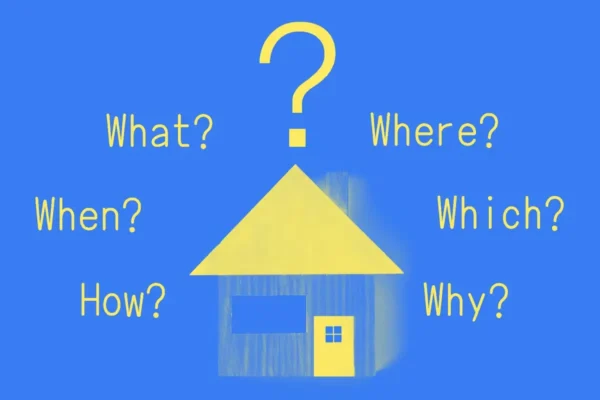
Pros and Cons: Home Equity Loans and Debt Consolidation

If you’re struggling with multiple debts—like credit card balances, medical bills, or personal loans—you might be looking for a way to simplify and lower your monthly payments. One option some homeowners turn to is a home equity loan.
The idea is to replace multiple debts with one lower-interest loan, making it easier to manage your finances and potentially save on interest. But while this approach has its benefits, it’s not without risks. Below, we’ll walk through the key pros and cons to help you decide if it’s the right move for you.
How to Use Home Equity for Debt Consolidation
If you’ve owned your home for a while, chances are you’ve built up some equity—maybe without even realizing it. Equity, which is the difference between what your home is worth and what you still owe on your mortgage, builds over time as you pay down your loan, make improvements, or benefit from changes in the housing market.
A home equity loan lets you borrow a portion of that equity with a fixed interest rate and repayment term. When you use this type of loan for debt consolidation, you’re essentially replacing multiple high-interest debts with one loan secured by your home.
Here’s a closer look at how the process works:
- You apply for a home equity loan. The amount you can borrow is based on your home’s value, your current mortgage balance, and your overall creditworthiness.
- Once approved, you receive a lump sum of cash.
- You use that cash to pay off your high-interest debts.
- Going forward, you make just one monthly payment on the home equity loan, typically at a lower interest rate than you were paying on your previous debts.
This approach can help lower your total interest costs, simplify your finances, and give you a clear timeline for paying off what you owe. But it’s important to remember that a home equity loan is secured by your home—so if you can’t keep up with payments, you could risk foreclosure.
Advantages of Using Home Equity for Debt Consolidation
There are several potential benefits to using your home equity to consolidate debt. For many homeowners, this strategy can make paying off debt easier, faster, and more affordable.
Here are some of the main advantages to consider.
1. Home equity loans offer much better interest rates than other loans and credit cards.
Home equity loans usually come with much lower interest rates compared to credit cards and many personal loans. While credit card rates can soar above 20%, home equity loans often fall into the single digits. This lower rate means you’ll spend less on interest over time, making it easier to pay down your principal balance.
2. You will only have one monthly payment to worry about.
When you consolidate multiple debts into a single home equity loan, you replace several monthly bills with just one. This can make your financial life simpler and help prevent missed or late payments. Instead of keeping track of various due dates and minimum payments, you only need to focus on one fixed amount each month.
3. The payment term is fixed.
Home equity loans have a set repayment timeline, often between 5 and 20 years. Unlike credit cards, which allow you to carry balances indefinitely, a home equity loan gives you a clear payoff date. This structure can help you stay disciplined, plan ahead, and avoid the cycle of revolving debt.
4. It can boost your credit score.
You may initially experience a small dip in your credit score because you’ve taken out a new credit account, but debt consolidation can help improve your credit score over time.
A big factor in determining your credit score is your credit utilization ratio. So if you’ve maxed out or are close to reaching your limit on your credit cards, taking out a new loan and paying those down can lower your credit utilization and improve your score.
Similarly, improving your payment history will boost your score. This won’t happen overnight, but if you use your debt consolidation to make positive financial changes, you will see improvement over time.
5. Home equity loans are easier to qualify for than other types of loans.
With a home equity loan, your home serves as collateral and helps guarantee loan repayment. Because of this, they are often easier to qualify for than unsecured loans. This can be especially helpful if your credit score has taken a hit due to your mounting debt.
Though easy approval is an advantage, letting your home serve as collateral can also lead to one of the most dangerous pitfalls of home equity loans, which we’ll discuss in the second half of this article.
Disadvantages of Using Home Equity for Debt Consolidation
While using a home equity loan to consolidate debt can offer clear advantages, it’s not the right choice for everyone. It’s important to understand the risks and potential downsides before moving forward. Here are some key disadvantages to keep in mind:
1. Your home is at risk.
A home equity loan is secured by your house. This means if you can’t keep up with the payments, you risk foreclosure and losing your home. While the lower interest rate may be tempting, the stakes are much higher compared to unsecured debt like credit cards or personal loans.
2. You’ll likely pay closing costs and fees.
Taking out a home equity loan often comes with upfront costs, such as application fees, appraisal fees, and closing costs. These expenses can range from 2% to 5% of the loan amount, which can eat into the savings you were hoping to gain through consolidation.
3. You may end up paying more with a longer-term home equity loan.
As we mentioned before, home equity loans typically have longer repayment terms. While this can make monthly payments more affordable, it can also mean you’ll be in debt for a longer period of time and potentially pay more in total interest, even at a lower rate.
4. A home equity loan is still debt.
Consolidating your debts doesn’t address the root cause of overspending or financial mismanagement. Without making changes to your spending habits, you may end up running up new balances on the credit cards you just paid off, leaving you with even more debt than before.
5. Not everyone qualifies.
To qualify for a home equity loan, you need to have sufficient equity in your home, a good credit score, and steady income. If you don’t meet these requirements, you may not be able to access this type of financing—or you may be offered less favorable terms.
Other Debt Management and Consolidation Options
A home equity loan isn’t your only option for managing or consolidating your debt. You have other options, including:
- A balance transfer credit card: With a credit card balance transfer, you will move your outstanding balance(s) from one card to another with more favorable terms. These often come with low-interest introductory offers that give you time to pay down your balance without racking up more interest charges.
- A personal loan: An unsecured personal loan can give some of the same benefits of a home equity loan without having your home tied to it as collateral.
- Debt repayment plan: Instead of taking out a loan or credit card to consolidate, you can sit down and formulate a detailed plan to repay the outstanding debts you have.
Like a home equity loan, it’s important to not abuse any additional funds or credit that you are extended. It is only beneficial if you pay it off on time.
Using Your Home Equity Loan Wisely
A home equity loan for debt consolidation can help solve your financial problems only if you make the lifestyle changes necessary to keep you from accruing additional debt. Be sure to compare lenders’ rates, fees, and loan intervals before making a decision, and be realistic about the payment you can make each month over the life of the loan. Even though this loan may seem like the perfect solution, not repaying a home equity loan can come with serious consequences, so it’s important to weigh your options carefully.
This post was originally published July 14, 2021.




